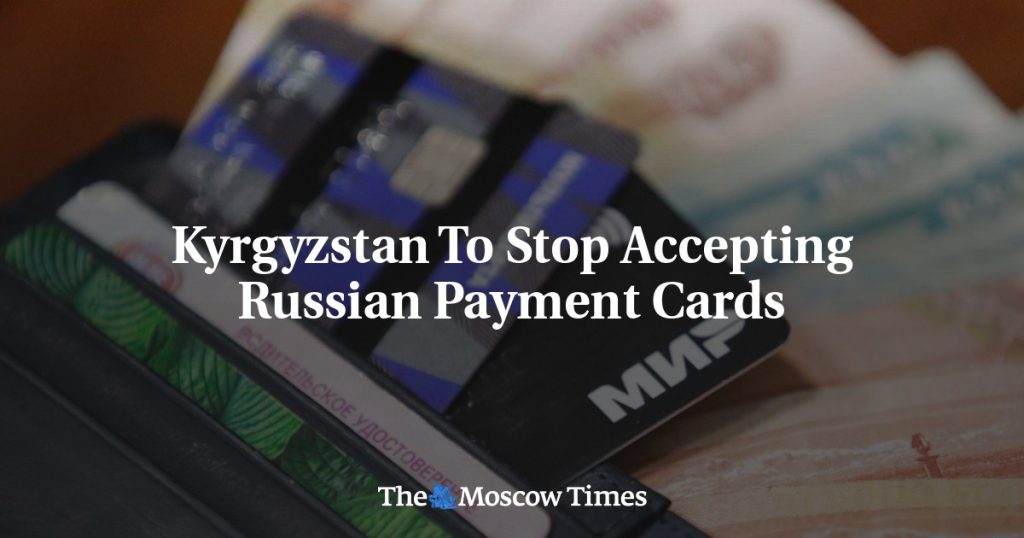Kyrgyzstan has announced that it will stop accepting Russia’s Mir payment cards due to concerns that the financial links could expose the country’s sector to Western sanctions. The decision comes after the United States sanctioned the organization behind Mir, Russia’s domestic card payments system, in February. This move is part of increasing pressure being placed on third countries over their financial connections to Russia.
The national payments operator in Kyrgyzstan, the Interbank Processing Center, made the decision to stop servicing Mir bank cards starting on April 5 in order to minimize the risk of facing secondary sanctions related to the US Treasury’s decision to sanction Russia’s National Card Payment System, the operator of Mir. This move highlights the impact of Western pressure on Russia’s allies and signifies the ongoing tensions between the US and Russia.
While banks in Kyrgyzstan had largely ceased using Mir cards in 2022, the latest decision underscores the influence of escalating Western pressure on the country. Some Western officials have raised concerns about Kyrgyzstan’s close ties to Russia, as it is a Russian ally and part of Moscow-led security alliances and customs unions. There are worries that Kyrgyzstan could be serving as a gateway for goods to enter Russia, leading to suspicions from the West.
Since Western sanctions were imposed on Russia in 2022 due to its actions in Ukraine, trade between Western countries and nations like Kyrgyzstan and Armenia has increased significantly. The US has issued warnings to Moscow’s allies and partners, indicating that they will face consequences if they are believed to be aiding Russia in evading sanctions. This move by Kyrgyzstan to cease accepting Mir cards aligns with these warnings and reflects the broader geopolitical tensions in the region.
Armenian banks also recently stopped processing payments through Mir cards, similarly citing concerns about the risk of secondary sanctions. This decision further illustrates how countries in the region are responding to growing pressure from the West regarding their financial ties to Russia. As the US and its allies continue to target Russia’s allies and partners, countries like Kyrgyzstan and Armenia face the challenge of balancing their relationships with Moscow while avoiding the threat of secondary sanctions.
The decision by Kyrgyzstan to discontinue accepting Mir payment cards demonstrates the complex web of geopolitical interests at play in Central Asia. As countries in the region navigate their relationships with both Russia and Western powers, they must carefully consider the potential consequences of their financial connections. The move also underscores the broader economic and political dynamics shaping the region, as tensions between the US and Russia continue to impact countries like Kyrgyzstan and Armenia.


